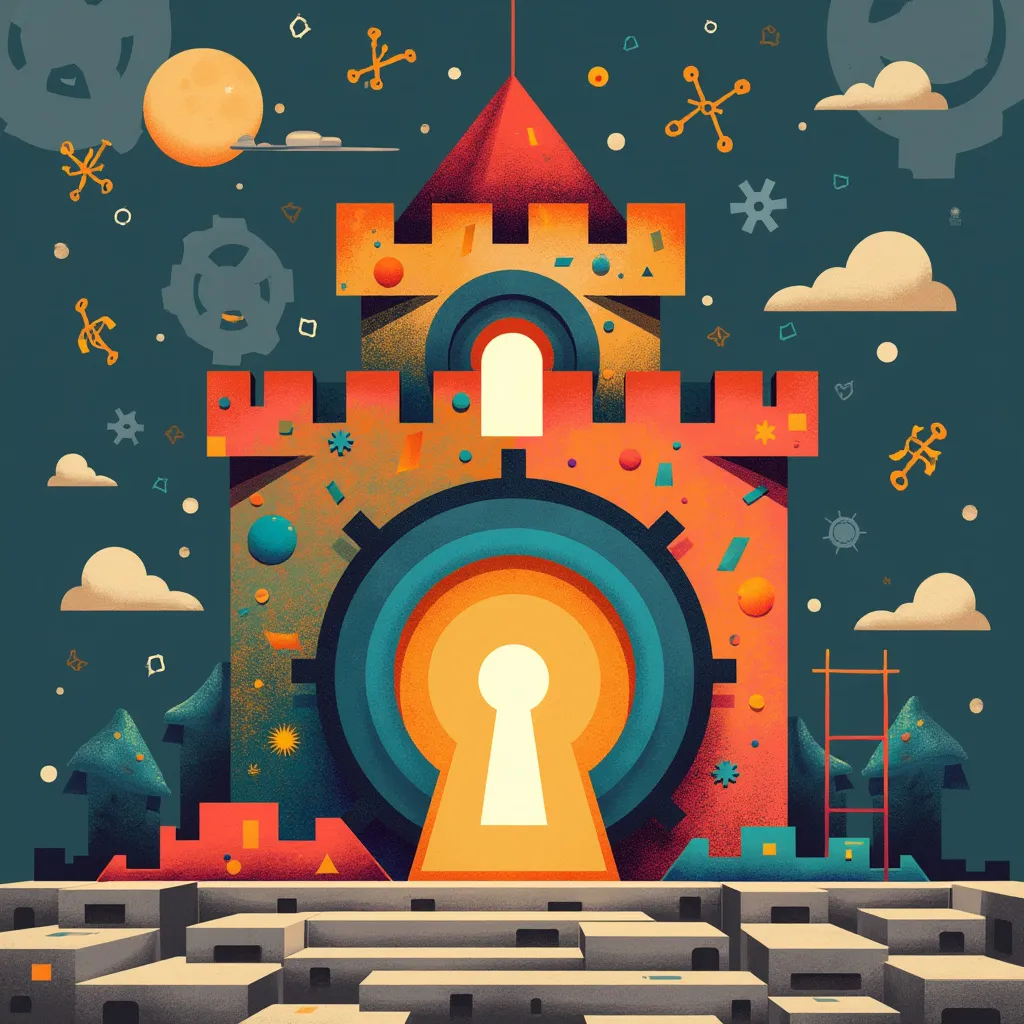
Generate Unicode Random Passwords [Updated 2025 with Emojis]
By Seth Black Updated May 08, 2025
...
Quickstart: Click "regen" to generate a new Unicode password. Click "copy" to copy it to your clipboard.

Generate strong, secure, and truly unique passwords using an extensive range of Unicode characters, including various symbols and even emojis! This Unicode Random Password Generator creates complex passwords locally in your browser, ensuring that your generated password is never sent over the internet or stored on any server.
Inspired by the idea that password rules should be more inclusive and less restrictive (as highlighted in Jeff Atwood's post "Password Rules Are Bullshit"), this generator embraces the full potential of Unicode. While many websites unfortunately still lag in supporting such characters, using Unicode passwords where possible can significantly enhance your security. This tool uses the robust Fortuna pseudo-random number generator (PRNG) to ensure high-quality randomness for your passwords.
This page is designed with simplicity and security in mind. All password generation logic runs directly in your browser. No data is transmitted, and no cookies are used for this generator.
Understanding Unicode Passwords
What are Unicode Passwords?
Unicode is a universal character encoding standard that assigns a unique number to every character, no matter the platform, program, or language. A Unicode password, therefore, is a password that can include characters from this vast set – not just the typical alphanumeric characters and a few symbols, but also characters from different scripts (like Cyrillic, Greek, Hanzi) and a wide array of symbols, including emojis (e.g., 🔑✨🌍🔒👍 or μ¥∑π∆웃♥).
Why Use Unicode Characters in Passwords?
- Massively Increased Character Set: The sheer number of available Unicode characters dramatically increases the complexity and strength of a password of a given length, making it exponentially harder to brute-force.
- Enhanced Security (where supported): For systems that correctly support Unicode, these passwords can be significantly more secure than traditional ASCII-based passwords.
- Potential for Memorability (with Emojis): While complex scripts might be hard to type, sequences of emojis can sometimes be more memorable for certain users, though typing them consistently across devices can be a challenge.
Challenges with Unicode Passwords
- Limited Support: The biggest hurdle is that many websites and systems do not fully support Unicode characters in password fields. Some may strip them, store them incorrectly, or reject them outright.
- Input Methods: Typing specific Unicode characters or emojis can be cumbersome or inconsistent across different operating systems and devices.
- Normalization Issues: Some Unicode characters can have multiple representations (e.g., a character with an accent can be a single precomposed character or a base character plus a combining accent). This can lead to login failures if systems normalize them differently.
Despite these challenges, advocating for and using Unicode passwords where supported helps push for better standards and stronger security practices across the web.
Unicode Password FAQ
What kind of Unicode characters does this generator use?
This generator is designed to pick from a wide selection of Unicode blocks, including common scripts, symbols, and emojis, to create a diverse and complex password. The specific character set can be seen in the underlying javascript-strong-password-generator library.
Are passwords with emojis secure?
Yes, if the system supports them correctly. Each emoji is just another character in the vast Unicode set. A password like "🍎🍌🍒🍓🍉" is, from a cryptographic perspective, just a string of characters. The security comes from the length and the size of the character pool it's drawn from. However, practical usability (typing, consistent rendering) can be a concern.
How long should a Unicode password be?
As with any password, longer is generally better. This generator defaults to a 26-glyph password. Given the vastness of the Unicode character set, even moderately long Unicode passwords can be exceptionally strong if the characters are chosen randomly from a large enough subset of Unicode.
Is this Unicode password generator safe to use?
Yes. This generator runs entirely in your web browser (client-side). No passwords or parameters are sent over the internet, and nothing is stored on our servers. The generated password is only visible to you.
What if a website doesn't accept my Unicode password?
Unfortunately, this is common. If a site rejects a Unicode password, you'll have to revert to using characters it does accept. You can use our standard Strong Random Password Generator or Random Passphrase Generator in such cases. It's also a good opportunity to (politely) contact the website administrators and encourage them to update their systems to support modern password standards, including full Unicode.
How does this generator ensure randomness?
This tool uses the Fortuna pseudo-random number generator (PRNG), a cryptographically strong PRNG, to select characters. This helps ensure that the generated passwords are unpredictable and statistically random.
Where can I find the source code for this generator?
The core password generation logic is part of the javascript-strong-password-generator library, and it uses javascript-fortuna. Both are open source and available on GitHub and NPM:
https://github.com/sethblack/javascript-strong-password-generator
NPM: javascript-strong-password-generator
https://github.com/sethblack/javascript-fortuna
NPM: javascript-fortuna
If you encounter websites that don't support Unicode passwords, or have other password-related frustrations, feel free to share your experiences. Advocating for better password practices helps everyone!
Also check out the Random Passphrase Generator, Random Password Generator, and MySQL Strong Password Generator.
-Sethers


